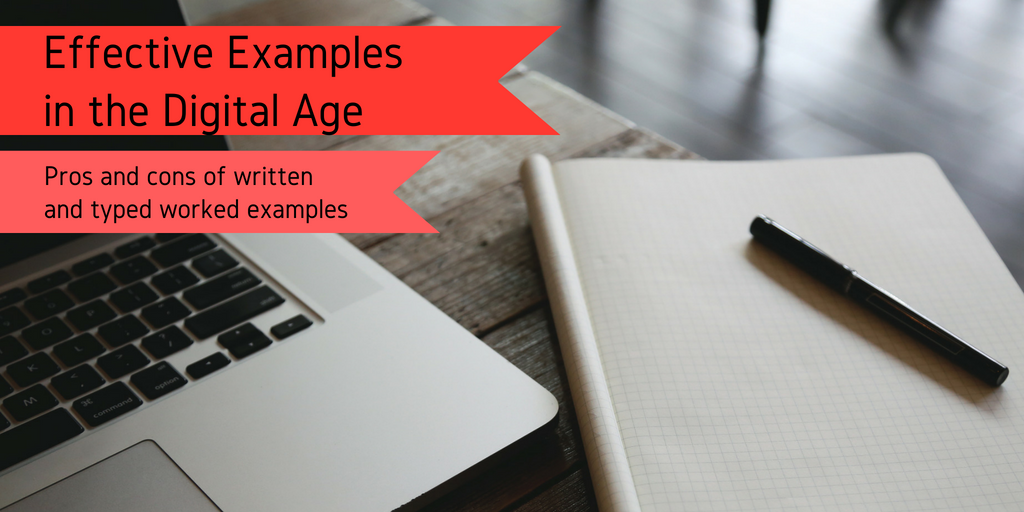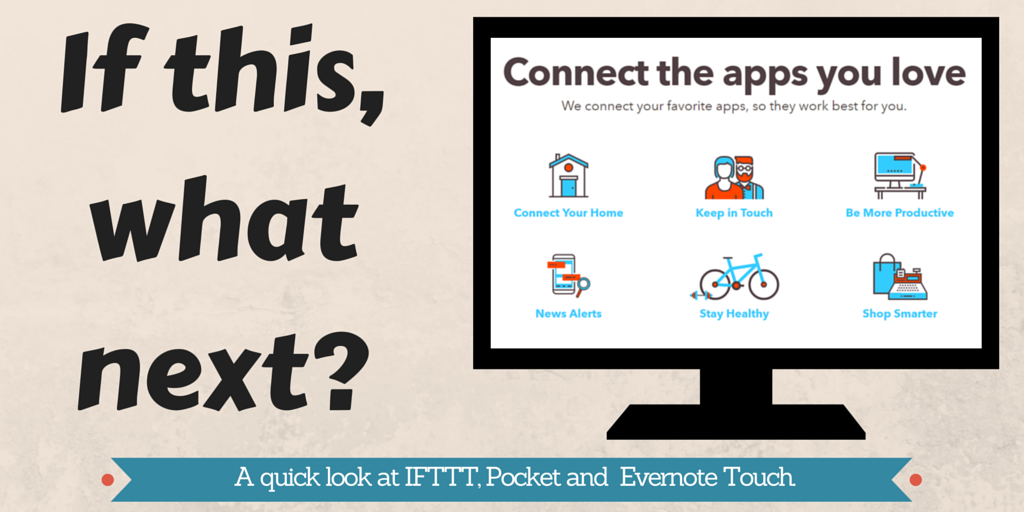There are some interesting studies about reading information via print or digital media; this paper from the Research in Learning Technology journal looks specifically at educational materials and this article from Phys.org summarises some of the preferences people have for different media - generally, we prefer printed media for longer, more involved reads and digital media for shorter reads. I also found this study examining handwriting vs typing inputs for students when solving equations; the authors conclude that the only real difference in this scenario is the speed at which students completed the task, with typesetting algebra taking twice as long as handwriting solutions. However, I've not been able to find anything on the modelling of worked examples in Maths, so this blog post is written with the caveat that this is all personal theorising and is not research-based.
Effective Examples in the Digital Age28/8/2018 Picking apart and reworking my lessons from last year, I noticed that I almost exclusively model worked examples by handwriting "live" rather than pre-typing. I don't recall making a conscious decision to do this, but following a discussion with my husband this weekend about print vs digital media, I thought I'd think more critically whether either style has any considerable advantage.
There are some interesting studies about reading information via print or digital media; this paper from the Research in Learning Technology journal looks specifically at educational materials and this article from Phys.org summarises some of the preferences people have for different media - generally, we prefer printed media for longer, more involved reads and digital media for shorter reads. I also found this study examining handwriting vs typing inputs for students when solving equations; the authors conclude that the only real difference in this scenario is the speed at which students completed the task, with typesetting algebra taking twice as long as handwriting solutions. However, I've not been able to find anything on the modelling of worked examples in Maths, so this blog post is written with the caveat that this is all personal theorising and is not research-based. If this, what next?17/8/2015 A couple of days ago, @mathedup mentioned using IFTTT (If This Then That) for automating post sharing between Twitter and Facebook. I'm not a big user of Facebook for teaching stuff (yet), but was intrigued by the title of the app, so decided to go and have a play, mostly in preparation for setting up my own Facebook page soon.
I quite like playing around with technology, and, as I only got a smartphone a couple of years ago and my tablet about six months ago, the world of apps is relatively new to me. So I've quite enjoyed messing with IFTTT this afternoon - depending on what's ended up being useful, I'll post some more in-depth tutorial-type things later. Memory and the Internet29/1/2015 Still checking through my old post archive and I found this. Thought it was worth reposting because a) it's reminded me what a good programme "The Digital Human" is (I will have to check when it's on again) and b) it seems even more relevant in the light of imminent GCSE curriculum changes. With a bit of digging, I've found out that I wrote this post in October 2012 - not sure which Katy Perry song I was referring to, but they all sound the same anyway! Stuck in traffic on the way home today, and bored of listening to Katy Perry's latest offering on pretty much repeat on most of the local radio stations, I made a very exciting discovery on Radio 4. I caught the last fifteen minutes of the program Digital Human, which explores how the world around us has evolved in the Digital Age. The programme I caught the end of was on memory, and looked at the idea that our memory is getting worse because we now have information permanently at our fingertips through smartphones and the Internet. It's well worth a listen, but a couple of things on there gave me a lot of food for thought. Hmm... got a bit ranty at the end there, didn't I? The programme is still available via the BBC using the link above. Gotta love blasts from the past! |
Categories
All
Archives
August 2020
|


 RSS Feed
RSS Feed
